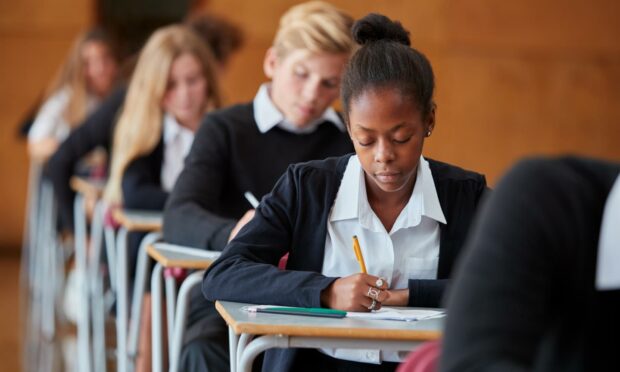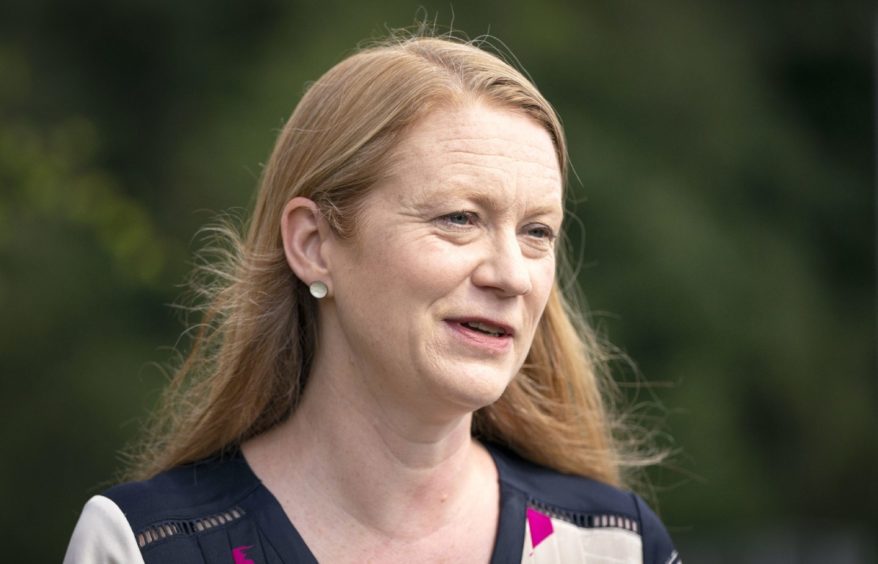Exams WILL be held in 2022 – if it is safe to do so.
The diet – scheduled to begin on April 26 – will be the first in three years, with those in 2020 and 2021 cancelled due to the pandemic.
That means it will be the first time any S4, S5 or S6 pupil taking National 5s, Highers or Advanced Highers has sat a traditional exam.
This year, pupils undertook assessments in place of exams, although they were deemed by many exams in all but name.
Education Secretary Shirley-Anne Somerville announced on Wednesday that exams will return in spring next year “if safe to do so”, but contingencies are being put in place.
Here’s what you need to know about arrangements for 2021/22 set out so far by the Scottish Qualifications Authority.
When will exams be held?
Scotland exams 2022 will be held between April 26 and June 1, with results issued on August 9.
Course content has been reduced to take account of the challenges and disruption young people have already faced due to the pandemic, according to the SQA.
Detailed planning is already underway for delivering exams, but discussions are continuing on additional measures to help if there is significant disruption or public health guidance changes.
What modifications?
Modifications to courses are aimed at reducing workload for teachers and pupils and the amount of assessment required, allowing for any lost learning caused by Covid.
For most courses these are the same modifications as last year, with adjustments to around 70 courses in response to feedback.
Summaries of all these modifications will be published between Thursday and the end of August, the SQA said.
What if there’s more disruption?
If learning suffers further significant disruption, additional support will be provided to ensure exams can still go ahead.
For example, advance notice may be given of some topics which will feature in papers.
What if it’s not safe to hold exams?
If public health conditions mean exams cannot be held awards will be made on teachers’ judgement based on normal in-year assessment.
Additional assessments like those conducted this year have, however, been ruled out.
Teachers would be asked to determine grades based on work already completed. To prepare for this, they will be asked to gather examples of work and records of assessment as they would in a normal year, including from prelims, practical performances or class tests.
What does the SQA say?
Scotland’s chief examining officer Fiona Robertson, SQA chief executive, said: “SQA understands the need to provide teachers, lecturers, parents, carers and learners with clear and timely information regarding assessments in 2022.
“Now that the Scottish Government has confirmed exams will be held if safe to do so, I look forward to continuing to work in partnership with the whole education system to deliver credible qualifications for Scotland’s learners.”
The future of exams
A report on exams is expected from the OECD (the Organisation for Economic Co-operation and Development) later this month, building on an earlier report which recommendation consideration of a shift from final exams.
The SQA itself is to be replaced by a new body responsible for Scotland’s curriculum.
Curriculum review highlights clash with ’19th Century’ exams – and here’s what else the OECD says

